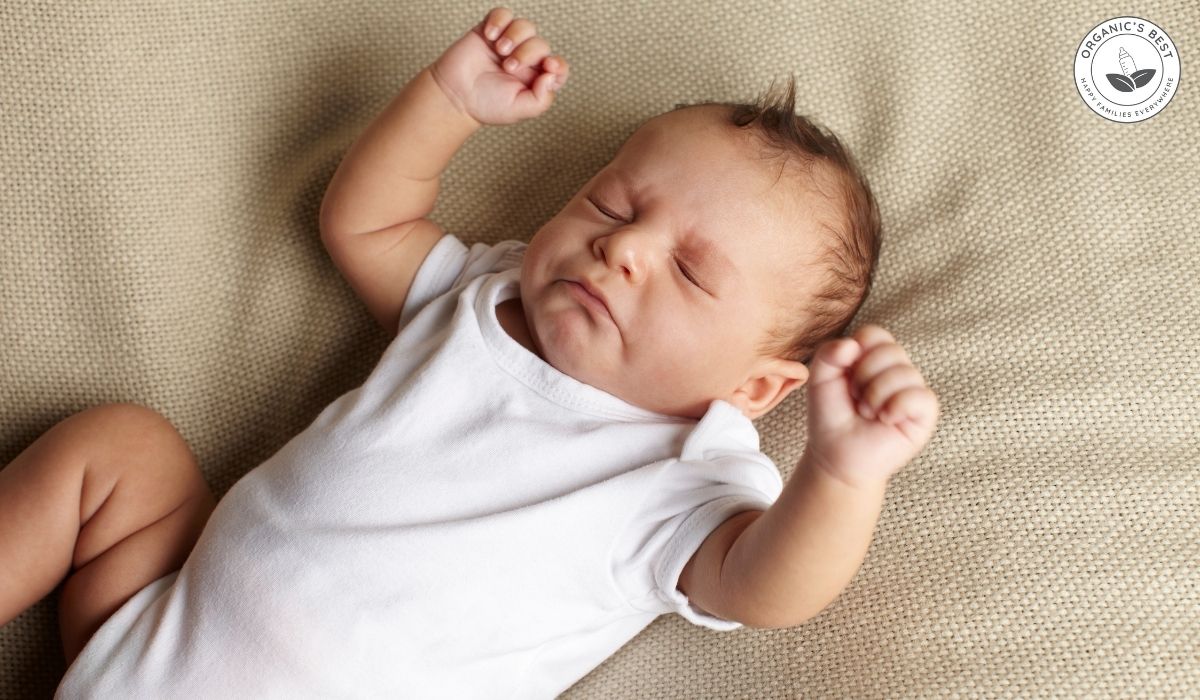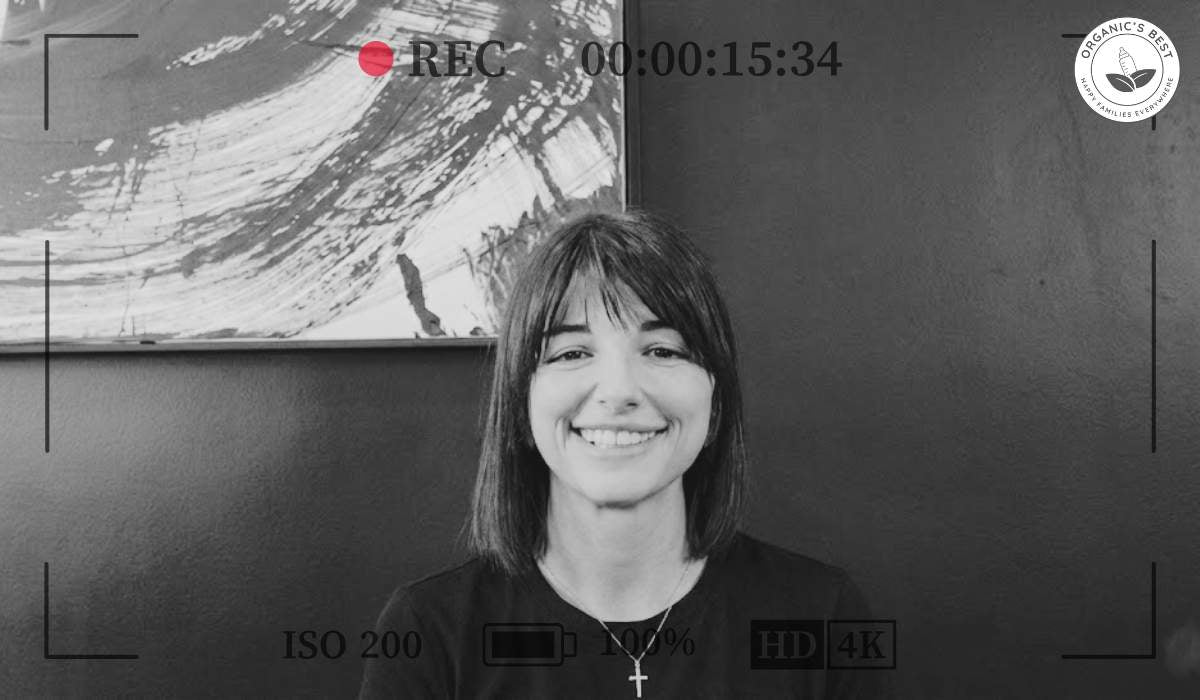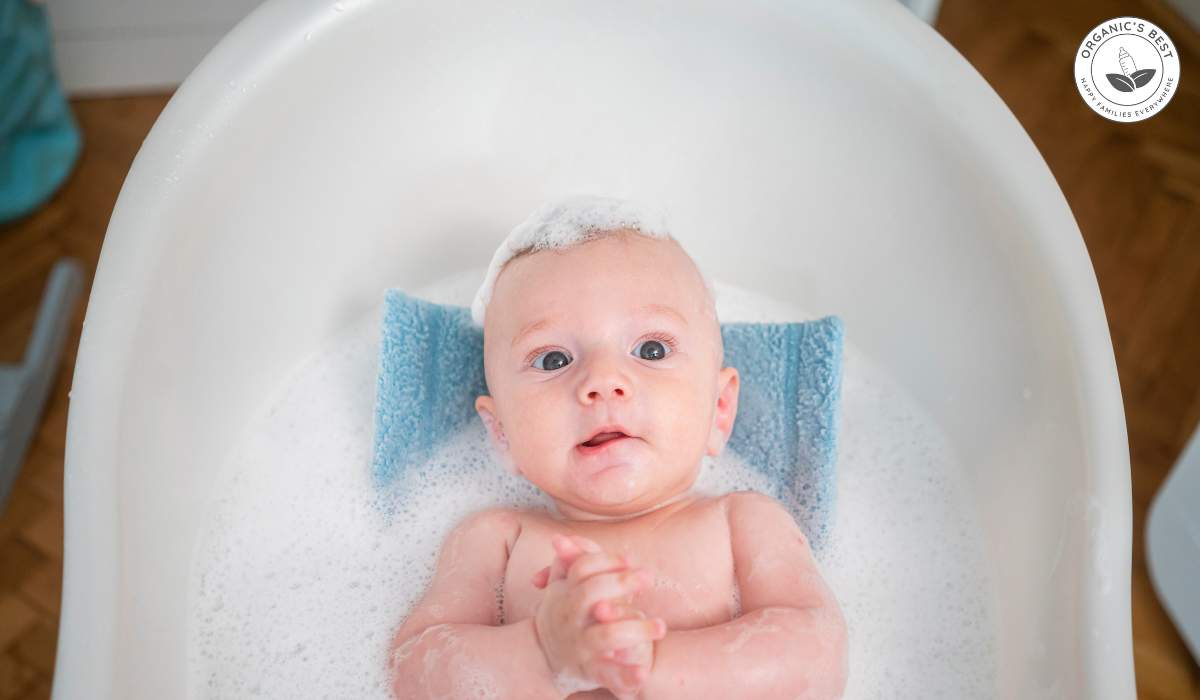Click to Get 2 FREE Boxes/Cans
Only New Customers! Click HERE to Get 2 Extra Boxes/Cans for Free With Your First Order.
BABY FORMULA
Offering new parents top-quality European infant formula from renowned brands like HiPP, Holle, Kendamil, and more. If you’re uncertain about which product to choose, our Formula Finder can help you make the best decision for your baby.
Baby Food
Offering new parents a premium selection of European baby foods, including jars, pouches, cereals, and snacks from esteemed brands like HiPP and Holle.
Newborn Sneezing a Lot? This Could Be Why...
by Agustina Fernandez January 24, 2023 4 min read

If you are the parent of a newborn, it is likely that any cough, sneeze or hiccup sends off alarm bells, making you wonder just how frequently these completely normal (but sometimes concerning) bodily functions should be happening.
The good news is, when it comes to babies, sneezing occasionally is generally considered normal for newborns and serves as a way for them to clear their nasal passages. If they are sneezing more frequently though, this may indicate that something else is going on, which may or may not require medical attention.
We are going to cover some of these scenarios below, along with tips for dealing with a stuffy nose and advice on when symptoms indicate that it is time to reach out to a healthcare provider.
Table of contents
How Much Newborn Sneezing is Normal Sneezing?
Even though hearing a sneeze from your little one can make you wonder if they are sick or dealing with allergies, if it is happening infrequently then you are probably in the clear. In fact, it is common for newborns to sneeze more often than older kids or adults.
Newborn sneezing is a reflex used to clear irritants, such as particles from their nasal passage. Newborn babies have much tinier noses compared to ours, which can cause them to get clogged more easily with mucus, dust particles, or even breast milk.
A newborn's sneeze serves to clear the nasal passage. Sneezing can also indicate that your little one's nervous system is functioning properly.
Why Does My Newborn Sneeze?
If you notice that your little one is sneezing more frequently, one of the following reasons could be the culprit...
Dry Air

Dry air can irritate the nose and cause sneezing. This is more common in colder seasons, such as winter or autumn, in air-conditioned environments, or when exposed to dry weather conditions. To combat dry air it may be beneficial to run a humidifier in the baby’s room while they sleep.
Blocked Nostrils

When breastfeeding, babies sometimes get their noses flattened and temporarily blocked by being pressed against the mother's breast. In this case, sneezing helps unblock the nostril. Breast milk can also get into the baby's nose and be cleared by sneezing.
Tiny Noses

As mentioned above, a newborn baby is more susceptible to nasal blockages due to having a very small and narrow nasal passage. This results in them needing to clear their nose more frequently, which is done by sneezing.
If they are unable to clear it themselves through sneezing, there are methods to help unblock a baby's nose, which we will discuss in detail below.
Illness

Sneezing can also indicate that your little one has a cold. If they do have a cold, your child probably has other symptoms along with sneezing, such as a runny nose, coughing, fever, low appetite, and fussiness.
Frequent sneezing can also indicate that it is something more than a cold, like an infection of the respiratory tract. If this is the case, it is important to seek immediate medical attention if your baby has any of the following symptoms:
-
Cough
-
Excessive tiredness
-
Trouble breathing
-
Fever (100.4 degrees Fahrenheit or higher)
-
Refusing to feed (either breastfeeding or formula feeding)
It is important to protect your little one from germs by washing your hands frequently and making sure anyone who touches your baby is doing so as well.
This is because their immune system gets stronger as they grow up, so while they are young, their immune system is still immature and therefore they are more susceptible to illness.
What to Do When a Newborn Has a Stuffy Nose?
Stuffy noses are no fun for anyone, and this can no doubt be concerning for a parent when it means that your little one becomes irritable or fussy. Let's talk a little bit about why babies are more sensitive to stuffy noses and touch on a couple of methods that may help clear the mucus and allow your baby to breathe with more ease.
Stuffy Noses
Contrary to popular belief, babies can breathe through their mouths, but they prefer to breathe through their noses. If they are dealing with any of the conditions above, whether it be allergies, blocked nostrils, or illness, a stuffed-up nose can make it harder for them to breathe. To help clear things up a bit, many parents turn to using saline nose drops, saline nose spray, or a bulb syringe.
Using a Bulb Syringe

Here are the steps for using a bulb syringe to clear your baby's nose:
-
Begin by squeezing the bulb without releasing it.
-
With the bulb still being squeezed, put the tip of the syringe in your baby’s nose. (Do not put the syringe in your baby's nose before squeezing, as this can cause the mucus to be pushed further up the nose)
-
Suck mucus out of your baby's nose by releasing the bulb.
-
Clean the syringe using hot water and soap after use. The easiest way to do this is by squeezing and releasing the syringe in hot soapy water which fills it up, followed by squeezing it again to release the water. This should be repeated at least a couple of times.
-
If you have questions about using a bulb syringe, or other techniques such as saline nose drops or saline nose spray ask your pediatrician, although they are all available without a prescription.
Conclusion
Caring for your little one's health can be nerve-racking at times and as a parent, you may feel uncertain about what to do when something like a sneeze begins happening more frequently. We hope that this article helped differentiate common conditions that cause sneezing vs. circumstances where sneezing may be a cause for concern and warrant medical attention.
To sum everything up, baby sneezing is very common and there are many reasons why your baby might be sneezing more frequently from dry air, or blocked nostrils from breastfeeding. The best thing to do is to keep them as comfortable as possible and address any concerns with your pediatrician.
Disclaimer:
Please be aware that this information is based on general trends evidenced in babies, it is in no way medical advice. Your baby's doctor should be your first source of information and advice when it comes to your child’s well-being. Always consult your pediatrician with any questions or concerns you may have regarding your infant's health. |
Agustina Fernandez
Dr. Agustina Fernandez earned her medical degree from the prestigious Universidad Nacional de Córdoba, Argentina. With a deep-rooted passion for pediatrics, Dr. Fernandez is currently on the path to specializing in children's healthcare. Recently, she has delved into the vital field of infant nutrition. Her research interests include breastfeeding, infant formula, and baby food in little ones’ formative years. Dr. Fernandez's commitment to this area of study underscores her dedication to ensuring the health and well-being of children from their earliest days.
Leave a comment
Comments will be approved before showing up.
Also in Organic Infant Nutrition and Health Blog

Spilled Milk: Feeding Unfiltered with Hayley
by Agustina Fernandez February 04, 2026 4 min read
Read More
Baby Bath Guide: How to Bathe a Newborn
by Agustina Fernandez February 03, 2026 8 min read
Read More
Does Your Kid Need More Vitamin D in Winter?
by Agustina Fernandez January 28, 2026 7 min read
Read More
Reviewed by Dr. Po-Chang Hsu, MD, MS
-

Dr. Po-Chang Hsu: Medical Reviewer of Organic's Best Blog
Dr. Hsu received his medical degree from Tufts University in Boston, Massachusetts, and holds a Master’s of Science degree from both Harvard University and Tufts University.
